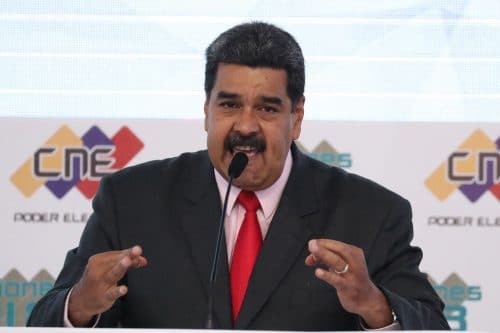Democracy Has Become a Useful Excuse for Endless Foreign Meddling

Am I the only one sick of hearing about how we should launch headlong into another conflict in the name of democracy? That seems to be the case based on the number of people I hear saying that the situation in Venezuela calls for a military intervention. It’s high time to dispel the notion that democracy can be imposed anywhere around the world at will, and that it’s only a matter of muscle and money.
This is how it’s supposed to work, in theory:
Some lucky nation is identified by the Washington establishment as being in dire need of more democracy. “Oh,” you might say, “like Saudi Arabia?” Not quite. Despite sponsoring terrorism, meddling all over the Middle East and recently conducting a public crucifixion in Mecca, the Saudis now let women behind the wheel of cars (when they aren’t chauffeur-driven). Apparently that’s enough democracy to appease our leaders. But neighboring Iran? It’s constantly targeted for “democratic enrichment” despite being a less egregious case than some of its neighbors.
Once the target country is identified, the talking points are churned out by the well-organized Washington system: lobbyists, think tanks, members of Congress, the presidential administration and much of the media. The drums of war beat louder, and the case for military intervention is made.
Has this strategy ever worked? Too often it completely backfires, as it did in Syria not long ago. The goal was a U.S.-backed coup d’etat in the interest of freedom and democracy, and the result was the exact opposite of stated intentions: Russian and Iranian influence in that country has grown stronger, and Syrian leader Bashar al-Assad is ever more entrenched.
How about in Ukraine, where pro-Western interests supported a domestic uprising against a legitimately elected government? This attempt to foster “democracy” gave neighboring Russia a pretext to swoop in and safeguard its Russian ethnic population in resource-rich Crimea under the United Nations’ “responsibility to protect” principle.
In Libya, the overthrow and assassination of former leader Muammar Gaddafi in the name of democracy has led to even more chaos and violence. And despite democracy — or its synonym, “nation-building” — being one of the primary justifications for staying in Afghanistan for the past 17 years, the bloodshed has continued.
Nation-building hasn’t worked since the Marshall Plan in the wake of World War II. That endeavor was only effective because Europe had already known democracy. It also worked in Japan in the wake of the Hiroshima and Nagasaki bombings because the country had been devastated and U.S. General MacArthur had been given carte blanche to perform a makeover.
The case of Japan demonstrated that democratic transition requires three elements: a disempowered leader, the absence of a power vacuum (authority was essentially passed directly from Hirohito to MacArthur), and public support of the foreign presence.
If any of these elements is missing, it’s a lost cause. Not that it deters our establishment leaders here in the West.
These days, leaders whose nations are targeted for democratization don’t simply renounce their authority. They’re executed or ousted via coup d’etat. It’s the difference between agreeing to go skydiving versus being pushed out of an airplane.
Power vacuums have plagued countries targeted for democratization. As we’ve seen in Libya, when a leader is ousted and replaced by a puppet government that’s friendly to foreign powers but has little authority over the people, chaos reigns as other factions fight for supremacy.
Support for any foreign presence rarely comes organically. It’s typically the result of ham-fisted, manipulative “hearts and minds” campaigns designed by pointy heads who arrogantly think that whatever makes sense to them while they sit around brainstorming in some K Street pub will prove equally poignant for someone thousands of miles away in a completely different day-to-day reality.
Maybe it’s time to acknowledge that democracy, like love, can’t be forced. Our leaders push the idea and hard-sell all the trappings in much the same way that the wedding industry peddles white dresses. In both cases, if the fundamentals aren’t there, everything blows apart sooner or later. Perhaps, as with relationships, we should be more open-minded in considering that there isn’t a single model. Maybe we should accept that democracy, in the way that we conceive it from our Western viewpoint, isn’t for everyone.
Instead of trying to force a ring on some unwilling nation’s finger, we should sit back and have more faith in our own values. Just look at socialist Venezuela, falling apart all by itself as a result of its poor ideological choices. Just sit tight and have a little more faith that, someday, the doorbell will ring.
© 2018 Tribune Content Agency, LLC.























